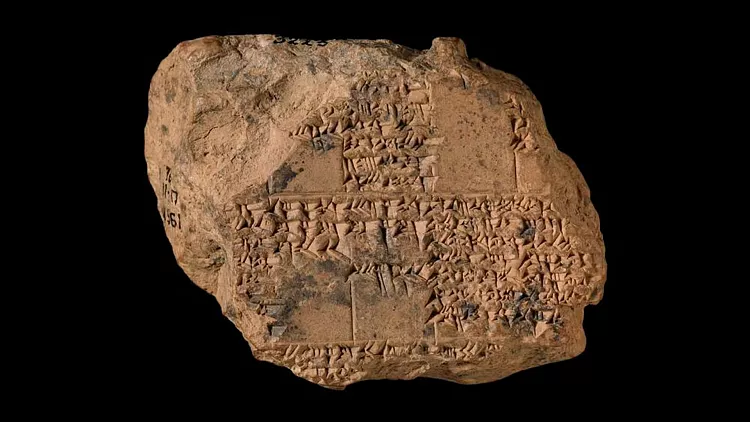Researchers decipher 4000 year old Babylonian tablets

Ancient tablets acquired by the British Museum decades ago have finally been deciphered – and they weren’t exactly good news for kings.
A team of researchers have successfully decoded 4,000-year-old writings on ancient Babylonian cuneiform tablets that had remained untranslated for over a century.
The latest research focused on four tablets from the British Museum’s collection, origin dating back to around 1200 BC from the ancient city of Sippar in what is now modern-day Iraq.
Published in the Journal of Cuneiform Studies, the newly deciphered texts reveal that the Babylonians viewed lunar eclipses not just as celestial events but as ominous signs of death and destruction.
One tablet notes that “an eclipse in the morning watch” means “the end of a dynasty.”
Another warns, “If an eclipse becomes obscured from its center all at once and clear all at once: a king will die, destruction of Elam.”
The writings would have been written by astrologers from the Mesopotamian civilization and now represent the oldest known records of lunar eclipse omens.
“Omens arising from lunar eclipses were of great importance for good statecraft and well-counseled government,” researchers wrote in a paper recently published in the Journal of Cuneiform Studies.
“In later periods there is ample evidence to show that astrological observation was part of an elaborate method of protecting the king and regulating his behavior in conformity with the wishes of the gods.”
Fortunately for the kings, there were methods to counter these omens, including consulting oracles – experts who would examine animal entrails – and carrying out the prescribed rituals.







